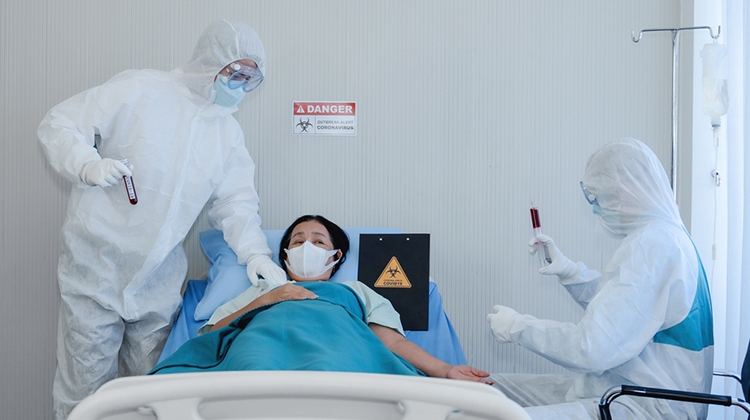Positive top line data released for study of C21 in COVID-19 patients
Posted: 9 December 2020 | Victoria Rees (European Pharmaceutical Review) | No comments yet
In hospitalised COVID-19 patients, researchers found that C21 reduced the risk of needing oxygen at the end of treatment by 40 percent.


Positive top line data has been announced from the ATTRACT COVID-19 trial with C21 (VP01) by Vicore Pharma.
The ATTRACT study was a randomised, double-blind and placebo-controlled trial investigating the efficacy of the oral drug C21 compared with placebo in 106 hospitalised COVID-19 patients with signs of an acute respiratory infection but not requiring mechanical ventilation. Many of these patients go on to experience respiratory distress, as manifested by the need for supplemental oxygen, often leading to acute respiratory failure if the disease progresses. The need for oxygen treatment reflects progress of the infection to the lower airways where gas exchange occurs.
The researchers found that C21 reduced the risk of needing oxygen at the end of treatment by 40 percent. There was a clear trend for C21 reducing the number of patients needing mechanical ventilation, with four patients in the placebo group compared to one in the C21 group.
There was also a trend for C21 reducing mortality, with three deaths in the placebo group compared with one in the C21 group.
The study showed that C21 was well tolerated in this population of severely sick patients.
Vicore Pharma says it will continue to analyse the data from the study and more information will be presented in due course.
“Given the nature and scale of this study, we are surprised to see such a clear and significant clinical benefit for C21,” said Carl-Johan Dalsgaard, Chief Executive Officer of Vicore Pharma. “Given the severity and duration of the pandemic, an oral C21 formulation with an excellent safety and tolerability profile could become an important and convenient early treatment of COVID-19, fulfilling a huge medical need. In addition, these results bode well for our ongoing study in idiopathic pulmonary fibrosis (IPF) as well as for future studies in larger indications where activation of AT2R may have a role to play.”
Related topics
Clinical Development, Clinical Trials, oral therapeutic candidate, Research & Development (R&D), Viruses









